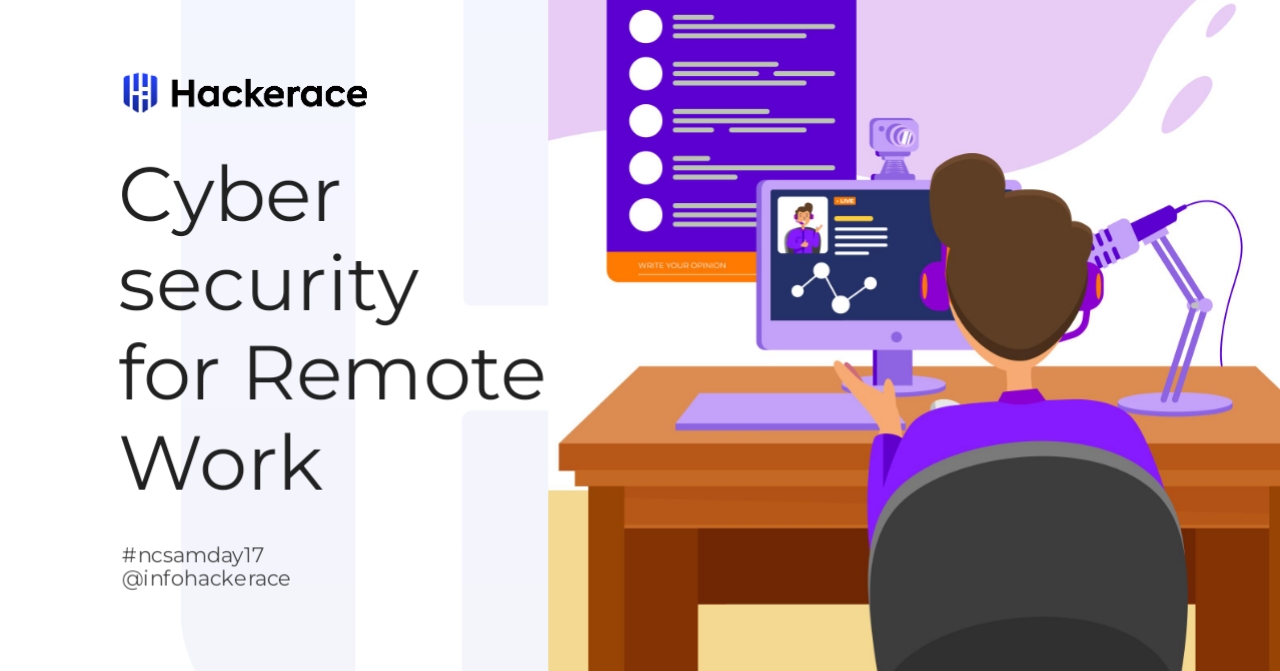Cybersecurity for Remote Work
 Hackerace
Hackerace
In the spirit of the National Cybersecurity Awareness Month (NCSAM) 2023, we’ll discuss various ways of ensuring cyber security for remote workers.
SECURING DEVICES
One of the most important things remote workers should do is to ensure their devices are up-to-date with the latest security patches and operating system updates. Out-of-data software can have vulnerabilities that make devices susceptible to attack. So it is important to install updates as soon as they are available.
ARE YOUR DEVICES IN DANGER?
It is important to know how to secure your devices. Here are ways to secure your devices online:
Use a firewall to secure your computer from hackers.
Keep your OS, apps and browser updated.
Use complex passwords to prevent network intrusions.
Use a VPN on open WI-FI networks, etc.
SECURING NETWORKS
When working remotely, it is important to use a secure network connection, like a virtual private network [VPN], to protect data in transit. VPNs encrypt data so it can not be intercepted and read by third parties. They also mask the IP address of the user, making it difficult for attackers to track their location.
Here are key concepts to keep in mind to secure your network as a remote worker:
AUTHENTICATION: This is the process of verifying the identity of someone or something trying to access a network.
AUTHORISATION: This is the process of giving someone or something permission to access the network once their identity has been verified.
CONFIDENTIALITY: This is making sure that only authorized users can access the data on the network.
SECURING DATA
Data security involves protecting data from unauthorized access, use, modification, or destruction. As a remote worker, there are several ways to do this; such as encryption, which uses algorithms to convert data into a secret code that only the authorized users can read.
Another technique is data masking, which substitutes sensitive data with randomly generated data that looks similar but is not sensitive. One of the most important things remote workers can do is to use strong passwords and enable two-factor authentication [2FA] to protect their accounts. Strong passwords are at least 12 characters long and include a mix of uppercase and lowercase letters, numbers, and special characters. 2FA adds an extra layer of security by requiring users to enter a code that is sent to their phone or email address in addition to their password.
PROTECTION AGAINST PHISHING
Phishing involves using deceptive tactics to lure unsuspecting prey. Phishing attacks use email or malicious websites to infect your machine with malware and viruses to collect personal and financial information. More than 90% of successful cyber-attacks start with a phishing email, making it a significant threat to individuals and organizations.
WAYS OF PROTECTING AGAINST PHISHING
Be skeptical of any unsolicited emails or texts asking for sensitive information.
Do not click on links or open attachments from unknown sources
Use a strong unique password for each of your accounts.
Use a web filtering service to block access to known phishing sites.
Verify the authenticity of websites by checking the URL for typos or suspicious domain names.
In conclusion, the importance of cyber security can not be overstated in today’s digital world. With so much of our lives taking place online, it is crucial to be aware of the various cyber threats that exist and take steps to protect ourselves and our data.
HAPPY READING
Subscribe to my newsletter
Read articles from Hackerace directly inside your inbox. Subscribe to the newsletter, and don't miss out.
Written by
